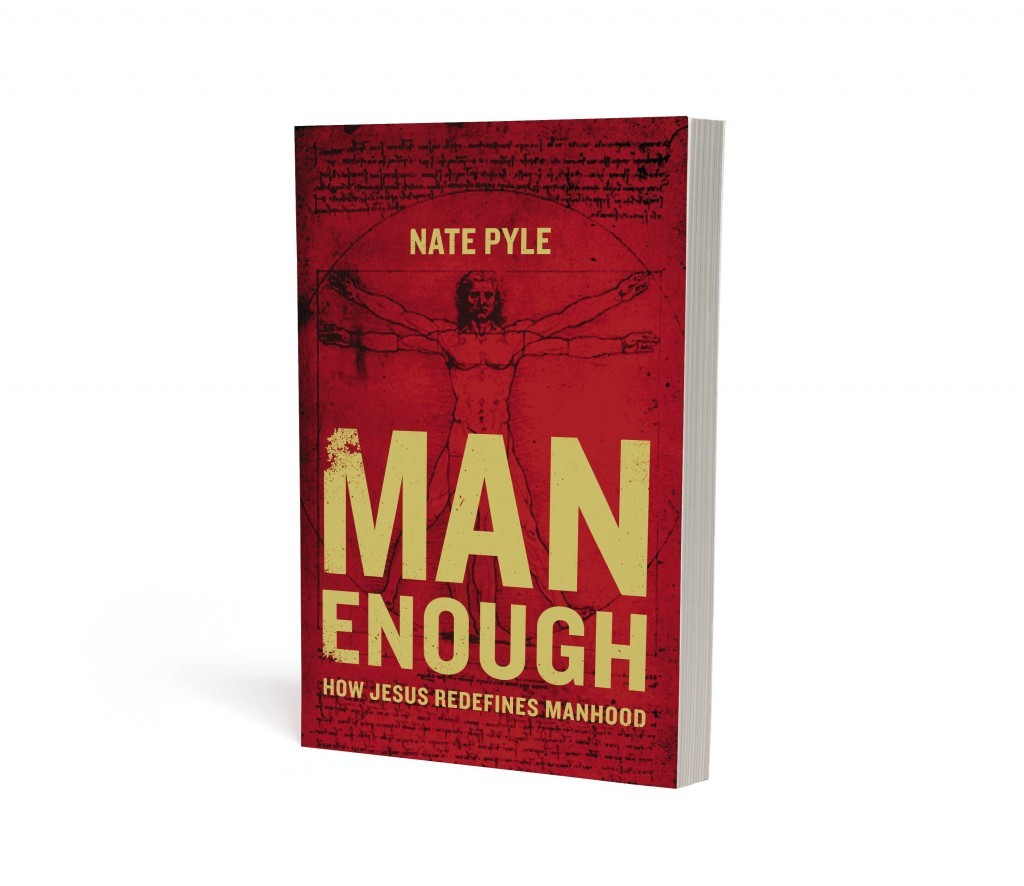Category: Richard Rohr (Page 1 of 4)
 Humanity can live without success but we cannot live without meaning – Richard Rohr
Humanity can live without success but we cannot live without meaning – Richard Rohr
When life hits you where it hurts, when something knocks you off your feet, pulls the rug out from under you and turns your life upside down, it is then that the things that really matter become crystal clear to you again.
It is said by wise people that love brings clarity. I have found that to be true. And something else that brings clarity is suffering. It is only through suffering that we grow, that we come to a knowing in our heart and not just intellectually that things like relationship and meaning are what really matter and that everything else is just superficial.
This is a major reason why I remain a person of Christian faith. The Christian movement was birthed in suffering; Jesus was known as a man of sorrows, acquainted with grief. Being Christian and seeking to grow in my faith makes sense to me when nothing else does. It allows me to have joy (not happiness) within suffering.
Our greatest lessons in life are learned in suffering. We don’t learn that in our daily interactions with our culture. Our leaders talk about being successful and winning, and our advertising is deliberately targeted to make us perpetually dissatisfied with what we have in life. But it was the Apostle Paul, writing from prison, who said that he had learned what it is to be content whatever the circumstances.
Why was it that those first followers of the man of sorrows, people like Paul, Peter and James, repeatedly talked about joy when they were beaten, lashed, imprisoned and tortured for refusing to budge from their way of life? They were people who were living in what Richard Rohr calls the second half of life. They knew through their suffering what really mattered. They were able to count it a privilege to suffer for what was called ‘The Way’. They were able to count it all joy when they faced trials of all kinds. That idea is lost on us in a society that values comfort and ease and feeling good above most everything else. But that brings its own suffering as addiction runs rampant as we want to feel all we can and are made to believe that more and better will give us what we want.
A few months ago I walked down the Via Dolorosa in Jerusalem. The Way of the Cross as it is called is the path that Jesus carried his cross to his crucifixion. John’s gospel says that Jesus’ crucifixion was when he was glorified. This is another idea that is lost on an affluent society. But it is the only way to life. That is why Jesus, surely knowing what lay ahead of him, said earlier in his ministry that anyone who would come after him must deny themselves, take up their cross and follow him. It is why Paul later said that anyone who follows Jesus will be persecuted.
Relationship and meaning in life are what ultimately matter. Suffering is the key that unlocks these truths.
Before people like me judge Donald Trump for his bombastic statements, let’s remember that he is a reflection of the adolescent culture we all live in.
Here is an article of mine on the Trump phenomenon, published here in Ethos…
Donald Trump as a reflection of an adolescent culture
Monday, 4 April 2016 | Nils von Kalm I find myself fascinated by the Donald Trump phenomenon. Why is it that a man who blatantly lies, advocates war crimes, promotes xenophobia and can’t decide whether or not to condemn the support of a KKK leader, is set to become the Republican nominee for the leadership of the most powerful nation in the world?
 The last twenty years or so have seen an encouraging increase in the number of books being written focusing on what it means to be an authentic male in our culture. Ever since Steve Bidduph wrote his epic Manhood in the mid-1990s, the growth in the men’s movement has seen more men work towards becoming more emotionally centred and available to their families and other loved ones.
The last twenty years or so have seen an encouraging increase in the number of books being written focusing on what it means to be an authentic male in our culture. Ever since Steve Bidduph wrote his epic Manhood in the mid-1990s, the growth in the men’s movement has seen more men work towards becoming more emotionally centred and available to their families and other loved ones.
This life-giving trend towards becoming better men has been equally seen in Christian circles. Richard Rohr, Parker Palmer, John Eldredge and others have written and taught much on what a real man looks like in a culture that pressures men to be someone they are not.
Into this mix comes probably the best book I have read on being a man among men. Nate Pyle’s Man Enough: How Jesus Redefines Manhood is a breath of fresh air in the increasing volume of literature on men and their issues.
It is wonderful to see an author be so open and vulnerable about his own vulnerability about not feeling like a man for such a long period of his life. Pyle’s experience will resonate with many men in the Church, including myself. It is only in recent years that I have done a lot of work on what a genuine man looks like. Reading Pyle’s book has allowed me to breathe a huge sigh of relief that you don’t have to be a “warrior man” – as some Christian authors emphasise, to be a godly man.
I have recently been asked to contribute to a blog called Godspace, run by Christine Sine of Mustard Seed Associates. In its own words, MSA “seeks to enable followers of Jesus, especially those who are innovators and unsatisfied with status quo faith, to a counter cultural way of life.” Right up my alley.
My first article was a reflection on Lent. I’m surprised how many Christians have never heard of Lent. I find it one of the most wonderfully solemn times of the year, a time to reflect more deeply on the suffering and sacrifice that Jesus went through.
This article focuses on something many Christians don’t see as an essential part of being a follower of Jesus; that is, that Jesus calls us to deny ourselves, take up our cross and follow. Or as Dietrich Bonhoeffer said, “when Christ calls a man, he bids him come and die”. Jesus aches for us to have the resurrection life, but there is no resurrection without death.
Here’s the article…
Walking Through Death
By Nils von Kalm Lent is a solemn time of year for me. In a way, it’s possibly my favourite time in the Christian calendar, alongside Christmas. They are my favourite times for vastly different reasons though. The season of Lent is traditionally seen as a time of sacrifice in preparation for the remembrance of the sacrifice of Christ.
“Wherever you are, be all there.” – Jim Elliott
Do you ever have the attitude that, no matter where you are, you want to be somewhere else? I do.
A friend and colleague of mine has been talking a bit lately about FOMO – Fear of Missing Out. It is the disease of the age. There are so many options in our lives these days, so many things to do, people to see and places to go, that we suffer from choice anxiety.
What this results in is an attitude of “keeping our options open” so we don’t miss out. But in the meantime, we end up not really experiencing anything properly because of our fear of committing. Continue reading
 First glance at a heading like this might cause some confusion. “But isn’t God spirit? Jesus himself says so, so what’s the problem with any attempt at being spiritual?”
First glance at a heading like this might cause some confusion. “But isn’t God spirit? Jesus himself says so, so what’s the problem with any attempt at being spiritual?”
Jesus did indeed say that God is spirit, in his incredible conversation with the woman at the well in John 4. And because Jesus said it, we can regard it as true. But do we find it kind of ironic as well that it is Jesus – God with skin on – who says that God is spirit?
If we want to know what God is like, as Richard Rohr says, we can just look at Jesus. If Jesus is our image of God, then Jesus is what God looks like. And Jesus was a fully embodied human being, just like the rest of us.
Most of our spiritualising of our Christian faith actually harks back to Greek thinking rather than what the biblical story is actually bringing across. And what Jesus meant when he said that God is spirit was not what we think it means. He was speaking into a specific situation and context with the woman at the well.
Most of you will have probably heard the story of the man who drowned in a flood and went to heaven. The story goes like this: Continue reading
 Here is another insightful post from Ian Grimwood. This one is on pain as a catalyst for change. It reminds me of a few things:
Here is another insightful post from Ian Grimwood. This one is on pain as a catalyst for change. It reminds me of a few things:
- As I realised when my role at World Vision was made redundant, sometimes your life has to be disrupted before you can move forward.
- Richard Rohr says that until we see that our current way of living isn’t working, we will never change (much like Ian’s point that change happens when the pain of staying the same becomes greater than the pain of change).
- Pain is a gift. We just need to choose to see it that way. And that’s when we can see the truth of Romans 8:28 in our lives.
- Martin Luther King talked about redemptive suffering. Our suffering is never meaningless, despite it often feeling that way.
 A couple of months ago I lost the job I love, at the organisation I have loved and worked at for 14 years. Needless to say, I was devastated.
A couple of months ago I lost the job I love, at the organisation I have loved and worked at for 14 years. Needless to say, I was devastated.
Time Magazine ran an article earlier this year showing that losing your job can have worse effects on your mental health than divorce or the death of a spouse. That’s pretty big. The disruption to your inner life, not to mention your external life, can probably best be described as something of an earthquake.
My first reaction to being told was shock. A feeling of hot anxiety worked its way from my abdomen up to my face as I was confronted with the reality of my life being turned upside down.
I’d known of this happening before of course, both in the organisation I worked for and in others. We all know it happens all the time. I was determined to stay rational, and not let my emotions get the better of me. Continue reading
 I am spending some time in the US this Australian summer. It’s my fourth time here. My first impressions this time are that, for most people, life is a daily battle to get everything done. It’s about making the bucks, working so hard that we no longer know what we’re working towards. No one seems to stop and smell the roses.
I am spending some time in the US this Australian summer. It’s my fourth time here. My first impressions this time are that, for most people, life is a daily battle to get everything done. It’s about making the bucks, working so hard that we no longer know what we’re working towards. No one seems to stop and smell the roses.
A culture that stops reflecting is a culture that doesn’t know where it’s going. This article is not a criticism of the US, because Australia, where I come from, is just the same. And even more so, I don’t spend enough time reflecting in my own life. But in this land where freedom and the individual pursuit of happiness is the guiding light that will lead us to the Promised Land, it seems to stand out more.
It has been said that we in the West have “noisy souls.” That is, we have so much going on in our brains that we are no longer able to take notice of the little things in life. We are so wired that we don’t know how to stop and notice the birds singing. Continue reading





